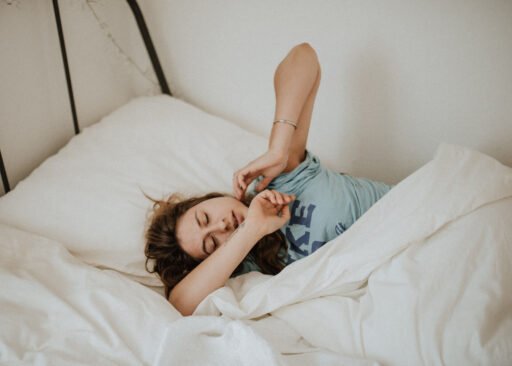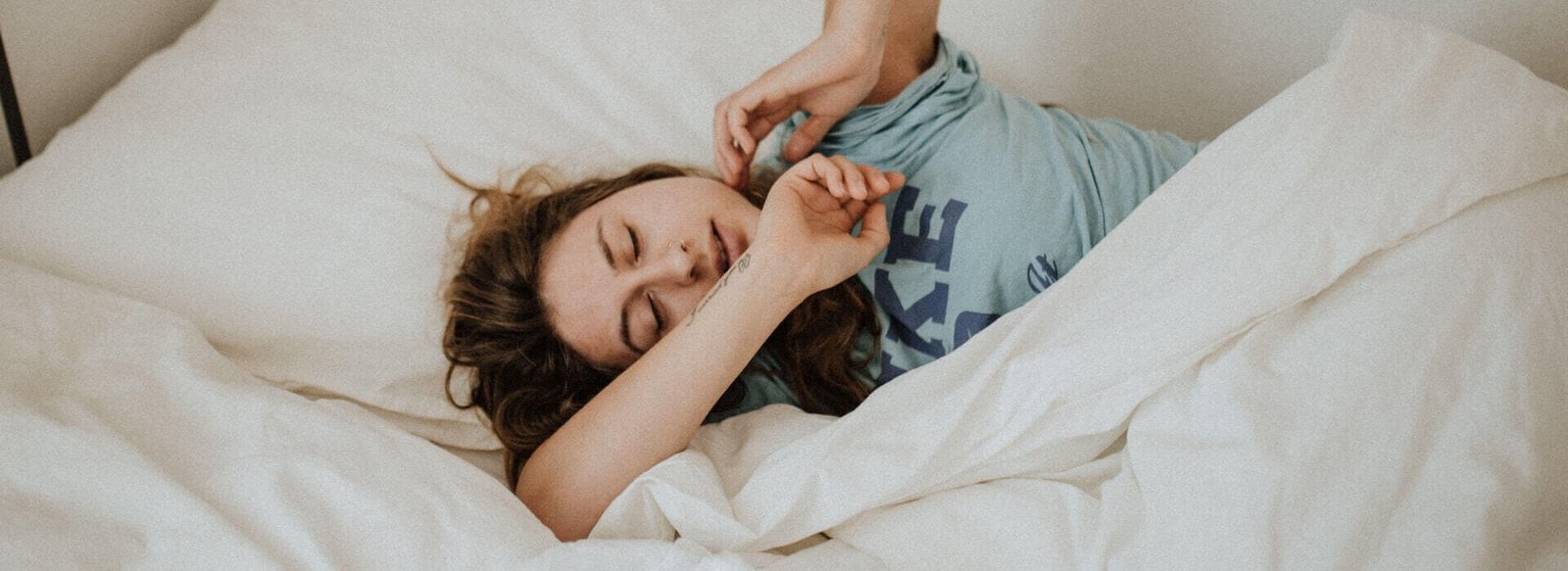Are your mornings often filled with a sense of unease? Do you find yourself waking up with anxiety, even before the day has begun? In this article “Why Do I Wake Up With Anxiety”, we will explore the possible reasons behind this phenomenon and delve into strategies that can help you start your day with a little more peace of mind. Discover the potential causes of morning anxiety and uncover practical tips to overcome it, so you can greet each day with a renewed sense of calm and positivity.
Causes of Morning Anxiety
Morning anxiety is a common experience that many individuals face when they wake up. This anxiety can be attributed to various factors that affect our mental and physical well-being. By understanding the causes of morning anxiety, we can take steps to manage and alleviate this distressing experience.
Sleep disturbances
One of the main causes of morning anxiety is sleep disturbances. When we don’t get enough quality sleep or experience interruptions during the night, it can leave us feeling restless and anxious upon waking. Factors such as insomnia, sleep apnea, or even loud noises can contribute to this sleep disturbance and subsequently lead to morning anxiety.
Hyperarousal
Hyperarousal refers to a state of heightened alertness and sensitivity to stimuli. Individuals who experience morning anxiety often have an overactive nervous system, which makes them more susceptible to feeling anxious in the morning. This heightened state of arousal can be influenced by factors such as chronic stress, trauma, or even certain medications.
Chemical imbalances
Chemical imbalances in the brain can also contribute to morning anxiety. Neurotransmitters, such as serotonin and dopamine, play a crucial role in regulating our mood and emotions. When there is an imbalance in these neurotransmitters, it can lead to increased feelings of anxiety and unease upon waking.
Anxiety disorders
For individuals already living with an anxiety disorder, mornings can be particularly challenging. Generalized anxiety disorder, panic disorder, and social anxiety disorder are just a few examples of conditions that can cause morning anxiety. These disorders can exacerbate the anxious thoughts and physical symptoms experienced upon waking, making it difficult to start the day on a positive note.
Why Do I Wake Up With Anxiety: Psychological Factors
Our psychological well-being plays a significant role in our experience of morning anxiety. Several psychological factors can contribute to this early morning distress.
Stress and worry
Stress and worry are common psychological factors that can trigger morning anxiety. When we are faced with significant stressors or ongoing worries, our minds tend to be preoccupied with these concerns during the night. As a result, we may wake up feeling anxious and overwhelmed by these persistent thoughts.
Racing thoughts
Racing thoughts are another psychological factor that can contribute to morning anxiety. Our minds can often feel overloaded with a continuous stream of thoughts, making it challenging to quiet the mind and find tranquility. These racing thoughts can intensify upon waking, leading to feelings of anxiety and restlessness.
Nightmares and bad dreams
Dreams can have a profound effect on our emotions and well-being. When we experience nightmares or bad dreams during the night, it can leave us feeling uneasy and anxious upon waking. These vivid and distressing dreams can linger in our minds, contributing to morning anxiety.

Why Do I Wake Up With Anxiety: Physical Factors
Our physical health and well-being also play a crucial role in the development of morning anxiety. Several physical factors can contribute to this phenomenon.
Hormonal changes
Hormonal changes, such as those that occur during menopause or the menstrual cycle, can influence morning anxiety. Fluctuations in estrogen and progesterone levels can lead to increased anxiety and emotional sensitivity, particularly during the morning hours.
Low blood sugar
Low blood sugar, also known as hypoglycemia, can trigger feelings of anxiety and unease in the morning. When our blood sugar levels drop during the night, it can leave us feeling shaky, irritable, and anxious upon waking. It is important to ensure a balanced diet and regular meals to prevent low blood sugar and associated morning anxiety.
Chronic pain or illness
Dealing with chronic pain or illness can also contribute to morning anxiety. The physical discomfort and limitations caused by such conditions can lead to feelings of frustration, hopelessness, and anxiety upon waking. These physical factors can significantly impact our emotional well-being in the morning.
Withdrawal from substances
Withdrawal from substances such as alcohol, drugs, or even caffeine can cause morning anxiety. When we become dependent on these substances and abruptly stop or reduce our consumption, it can lead to withdrawal symptoms, including heightened anxiety upon waking. Gradually reducing the intake of such substances and seeking professional help can alleviate this morning anxiety.
Environmental Factors
Our surroundings and environment can have a significant impact on our mental health and well-being, including morning anxiety. Several environmental factors can contribute to this experience.
Uncomfortable sleep environment
Sleeping in an uncomfortable environment can disrupt our sleep patterns, leading to morning anxiety. Factors such as a noisy neighborhood, uncomfortable bedding, or a room that is too hot or cold can interfere with our ability to rest deeply. Creating a comfortable sleep environment free from distractions can promote better sleep and reduce morning anxiety.
Exposure to triggers
Exposure to triggering stimuli can also contribute to morning anxiety. Certain sights, sounds, or situations can evoke anxious thoughts and emotions, leaving us feeling on edge when we wake up. Identifying and minimizing exposure to these triggers can help alleviate morning anxiety.
Lack of sunlight or fresh air
A lack of sunlight and fresh air can negatively impact our mood and contribute to morning anxiety. Natural light and fresh air have been shown to boost serotonin levels and improve overall well-being. Ensuring we have access to natural light and fresh air in our sleeping and waking environments can help combat morning anxiety.

Why Do I Wake Up With Anxiety: Cognitive Factors
Our thought patterns and cognitive processes can significantly influence the experience of morning anxiety. Several cognitive factors can contribute to this phenomenon.
Negative thinking patterns
Negative thinking patterns, such as catastrophizing or overgeneralizing, can fuel morning anxiety. When we continually focus on worst-case scenarios or interpret events in a negative light, it heightens our anxiety levels upon waking. Recognizing and challenging these negative thoughts can help alleviate morning anxiety.
Anticipation of stressors
Anticipating stressful events or situations can trigger morning anxiety. When we know we have a challenging day ahead or are facing a particularly stressful situation, our minds can become preoccupied with worry and apprehension during the night. This anticipation can manifest as morning anxiety when we wake up.
Perfectionism
Perfectionism can contribute to morning anxiety, as individuals with this trait often put immense pressure on themselves to perform at an exceptional level. When we wake up, the weight of these high expectations can immediately lead to feelings of anxiety and self-doubt. Learning to embrace imperfections and set realistic expectations can help reduce morning anxiety associated with perfectionism.
Why Do I Wake Up With Anxiety: Behavioral Factors
Our lifestyle choices and behaviors can impact our mental and emotional well-being. Several behavioral factors can contribute to morning anxiety.
Irregular sleep schedule
An irregular sleep schedule, such as constantly changing bedtime or wake-up times, can disrupt our body’s natural sleep-wake cycle. This inconsistency can contribute to morning anxiety by preventing us from getting the recommended amount of sleep or causing our bodies to be out of sync with our natural rhythms. Establishing a consistent sleep schedule can help reduce morning anxiety.
Overuse of electronic devices
The overuse of electronic devices, particularly before bed, can contribute to morning anxiety. The blue light emitted by these devices can interfere with our circadian rhythm and suppress the production of melatonin, the hormone that helps regulate sleep. Limiting screen time before bed can ensure a more restful night’s sleep and alleviate morning anxiety.
Caffeine and stimulant intake
Consuming high amounts of caffeine or other stimulants, such as energy drinks, can contribute to morning anxiety. These substances can increase heart rate and induce feelings of restlessness and anxiety. Minimizing caffeine and stimulant intake, particularly in the evening, can help reduce morning anxiety.

Impact on Daily Functioning
Morning anxiety can have a significant impact on our daily functioning and overall well-being. Understanding the consequences of morning anxiety can highlight the importance of addressing and managing this issue.
Reduced productivity
Morning anxiety can impede our ability to focus and concentrate, leading to reduced productivity throughout the day. The persistent feelings of stress and unease can make it difficult to tackle tasks and responsibilities with clarity and efficiency.
Interference with relationships
Morning anxiety can also interfere with our relationships with others. When we wake up feeling anxious and on edge, it can affect our interactions with loved ones, colleagues, and friends. The strain caused by morning anxiety can negatively impact our relationships and overall social well-being.
Persistent fatigue and irritability
Morning anxiety can leave us feeling fatigued and irritable throughout the day. The lack of restful sleep and the emotional toll of anxiety can contribute to low energy levels and increased irritability. This can further impact our ability to perform daily activities and engage with others in a positive manner.
Managing Morning Anxiety
Fortunately, there are various strategies and techniques that can help manage and alleviate morning anxiety. By implementing these tools, individuals can regain control over their mornings and start the day on a more positive note.
Establishing a bedtime routine
Establishing a bedtime routine that promotes relaxation and a peaceful night’s sleep can help reduce morning anxiety. This routine can include activities such as reading, taking a warm bath, practicing relaxation exercises, or listening to calming music. Consistently following a bedtime routine can signal to the mind and body that it is time to wind down and prepare for sleep.
Implementing relaxation techniques
Implementing relaxation techniques throughout the day can also help manage morning anxiety. Techniques such as deep breathing exercises, meditation, or mindfulness can help calm the mind and reduce anxiety. Incorporating these practices into your morning routine can set a positive tone for the rest of the day.
Regular exercise
Regular exercise has been shown to have numerous benefits for mental health, including reducing anxiety. Engaging in physical activity in the morning, such as going for a walk or doing yoga, can help release endorphins and alleviate morning anxiety. Finding an exercise routine that you enjoy and can commit to can significantly impact your overall well-being.
Seeking professional help
For individuals experiencing persistent and severe morning anxiety, seeking professional help is crucial. Mental health professionals, such as therapists or psychiatrists, can provide guidance and support in developing coping strategies tailored to your specific needs. They can also explore the underlying causes of your morning anxiety and assist in developing a comprehensive treatment plan.
Seeking Professional Help
Morning anxiety can significantly impact our daily lives and emotional well-being. In some instances, seeking professional help may be necessary to address and manage this distressing experience.
Therapy options
Therapy is an effective and commonly recommended approach for managing morning anxiety. Cognitive-behavioral therapy (CBT) focuses on identifying and challenging negative thoughts and behaviors that contribute to anxiety. Additionally, other therapeutic approaches, such as mindfulness-based therapies or exposure therapy, may be beneficial in addressing the underlying causes of morning anxiety.
Medication
In some cases, medication may be prescribed to alleviate morning anxiety. Antidepressants or anti-anxiety medications can help regulate neurotransmitter levels and provide relief from persistent anxiety symptoms. It is essential to consult with a healthcare professional to determine if medication is an appropriate option for your specific situation.
Support groups
Joining a support group can provide individuals with a sense of community and understanding. Sharing experiences and challenges with others who have faced or are currently dealing with morning anxiety can offer valuable insights, coping strategies, and emotional support. Support groups can be found online or in-person, depending on personal preference and accessibility.
Conclusion: Why Do I Wake Up With Anxiety
Morning anxiety is a common experience that can significantly impact our well-being and daily functioning. By understanding the causes and factors that contribute to morning anxiety, we can implement effective strategies to manage and alleviate this distressing phenomenon. By establishing a bedtime routine, practicing relaxation techniques, incorporating regular exercise, and seeking professional help when needed, individuals can regain control over their mornings and start each day with a greater sense of calm and well-being. Remember, you are not alone in your experience of morning anxiety, and there are resources available to support you on your journey towards a more anxiety-free morning routine.
Frequently Asked Questions:
- How do you stop waking up with anxiety? Establish a calming bedtime routine, limit screen time before sleep, and practice relaxation techniques such as deep breathing or meditation. Addressing underlying stressors through therapy can also contribute to better sleep.
- Why do I wake up with intense anxiety? Intense morning anxiety can stem from unresolved issues, stressors, or subconscious worries. Identifying and addressing these factors through therapy or self-reflection may help alleviate morning anxiety.
- How do I fix my sleep anxiety? Create a sleep-conducive environment, maintain a consistent sleep schedule, and practice relaxation exercises before bed. If sleep anxiety persists, consulting with a healthcare professional or therapist is advisable.
- Why do I wake up in fight or flight mode? Waking up in fight or flight mode can be linked to the body’s stress response. Techniques like grounding exercises or mindfulness can help shift the nervous system from high alert to a calmer state.
- What is the 3 3 3 rule for anxiety? The 3 3 3 rule involves acknowledging three things you see, hear, and feel to ground yourself in the present moment. Applying this technique upon waking can help manage anxiety and set a positive tone for the day.
- Why do I wake up with a feeling of dread? Feelings of dread upon waking may be connected to underlying anxieties or unresolved issues. Exploring these feelings with a therapist can provide insight and strategies for coping.
- What is it called when you wake up in a panic? Waking up in a panic is often associated with night panic attacks or night terrors. Consulting with a healthcare professional is recommended to determine the cause and appropriate interventions.
- Why do I wake up with negative thoughts? Negative morning thoughts can be a result of subconscious worries or unresolved issues. Engaging in positive affirmations, journaling, or seeking therapy can help shift these thoughts over time.
- Why is my sleep anxiety so bad? Severe sleep anxiety may be influenced by various factors, including trauma, stress, or underlying mental health conditions. Seeking professional help is crucial for understanding and addressing the root causes.
- Is sleep anxiety common? Sleep anxiety is not uncommon and can affect individuals for various reasons. Recognizing and addressing the factors contributing to sleep anxiety is essential for finding effective solutions.
- What is the best position to sleep in for anxiety? Sleeping on your back with a supportive pillow is often recommended for anxiety. Experiment with different sleep positions and pillows to find what brings you the most comfort.
- Why do I wake up at 3 am with anxiety? Waking up at 3 am with anxiety may be related to the body’s natural stress response or an unresolved issue. Establishing a calming bedtime routine and addressing stressors can help alleviate this pattern.
- Can anxiety wake you up from sleep? Yes, anxiety can disrupt sleep and lead to waking up during the night. Addressing the underlying causes of anxiety through therapy or relaxation techniques may help improve sleep quality.
- Does anxiety worsen with age? Anxiety can vary throughout life, and while some individuals may experience increased anxiety with age, others may see improvements. Managing stress, practicing self-care, and seeking support can contribute to a healthier mental state.
- What do anxiety chills feel like? Anxiety chills can manifest as sudden shivers or a feeling of coldness, often associated with heightened stress or anxiety. Recognizing these physical cues can be a signal to practice calming techniques.
- Can good sleep get rid of anxiety? While good sleep alone may not eliminate anxiety, it plays a crucial role in overall mental health. Establishing healthy sleep habits is a valuable component of a comprehensive approach to anxiety management.
- Should I go to the ER if I haven’t slept in 3 days? Extreme sleep deprivation can have serious health consequences. If you haven’t slept in three days and are experiencing severe physical or mental symptoms, seeking emergency medical attention is advisable.
